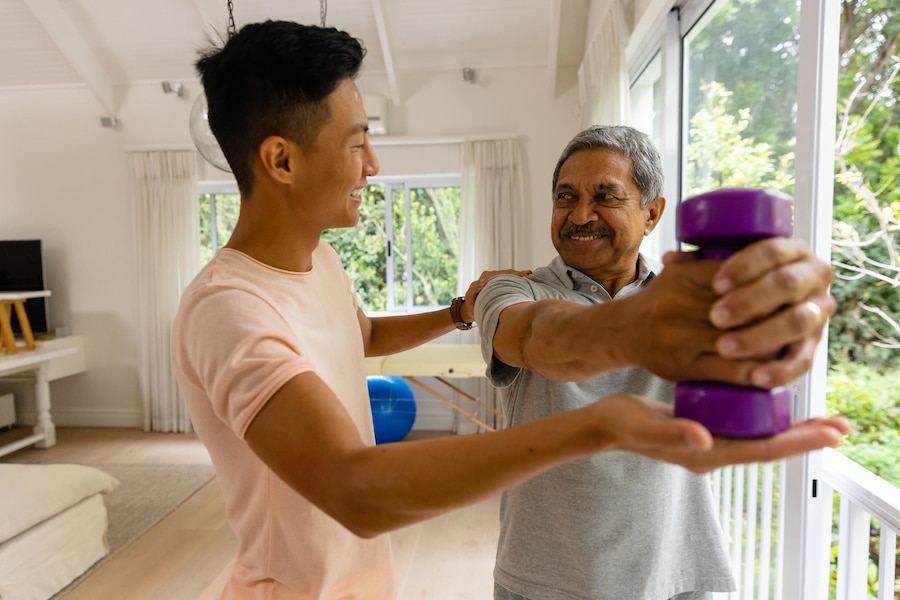When Mr Kumar was diagnosed with dementia, he wasn’t quite sure what it meant to him and his family. He was still able to do day to day activities and was pretty much independent. And later, when his neurologist suggested that it could be Alzheimer’s disease, he knew that his life wouldn’t be the same anymore. He started reading about dementia and Alzheimer’s and collected as much information as he could. He consulted his neurologist on a regular basis and made sure that he was on the right medicines. He prepared his life and his family to accept and accommodate the changes dementia was going to bring in their life.
Dementia is not always forgetfulness. It’s an overall term that describes a group of symptoms associated with a decline in memory or other thinking skills severe enough to reduce a person’s ability to perform everyday activities. Alzheimer’s disease accounts for 60 to 80 percent of cases. A diagnosis of dementia itself doesn’t mean that you are not able to make decisions anymore but progressive dementia can lead to such situations in future. Like Mr Kumar, it is always good to be prepared to compensate for impaired decision making later in life.

Things to Do for Managing Dementia
Early Diagnosis Helps
Dementia is not a part of the normal aging process. While forgetfulness can happen at any age, if you think that you are becoming too forgetful recently, consult your physician as early as possible.
Dementia doesn’t always mean memory loss. Changes in behavior, abnormal behavior, and fluctuating moods can also indicate dementia. These are not part of normal aging either.
Know More About Dementia
Talk to your doctor about dementia. Educate yourself on the disease so that you can be better prepared.
Dementia is not something to be hidden or ashamed of. It needs to be discussed in the family, as family members need to accept and address the behavioral and personality changes that can happen as dementia progresses.
Preparing and Sorting Out Problems
1) Finances and Banks
- It is better to have a joint account in banks. You can add your spouse or any other family member whom you entrust with your finances to help keep your money safe.
- It is better to have one bank account than multiple to ease the process of managing funds.
- Keep a checklist of all your utility bills to be paid, and if possible, make the payments automatically.
- Update nominee information in all your banks, mutual funds, and insurance documents.
- Appoint an enduring power of attorney to manage your funds and investments well ahead of time.
2) Health
- Keep all your diseases under control. Having dementia doesn’t mean that other diseases don’t matter anymore.
- Consult your physician on a regular basis and keep your blood work up to date.
- There are medications that can help in the early stages of dementia to slow down the progression of the disease. Consult your physician about these medications.
- Keep a well-organized file of your medical history, including all past health records, insurance details, and medication lists.
- Keep your brain healthy and active. Engage in social conversations, walking, learning new things, and do everything that you enjoy doing. Dementia doesn’t mean that you stop doing everything.
3) Make a Will or Update Your Existing Will
If you have not prepared a will, it is highly recommended that you do so.
A diagnosis of dementia does not automatically mean you have lost the capacity to make decisions for yourself. However, if you are concerned about memory loss, it is important to acknowledge the issue and seek legal advice.
4) Appoint a Health Proxy
It is better to entrust your health decisions to someone who understands you.
It is equally important to share with this person what your choices would be in the future. For example, the inability to eat is one of the features of late-stage dementia. Whether you would like to be fed through tubes or intravenous fluids is your choice. You can explicitly state such choices in your living will.
5) Create a Living Will
A living will or advanced health care directive outlines the health choices you make before encountering such medical problems. While there is not enough clarity on the legality of such a document in India, it can be executed based on mutual understanding and trust between the elder, their physician, and the health care proxy.
Create a list of medical treatments and procedures that you are willing to take or undergo. More importantly, include the treatments you don’t want to undergo.
In case you decide to appoint a health care proxy instead of writing it down, make sure that all your wishes are clearly communicated to them. Let your family know about the same. A health care proxy can be your family member, a friend, a legal representative, or even your primary physician.
6) Decide Where You Want to Spend the Rest of Your Life
Changing your home environment in the middle or late stages of dementia can worsen memory impairment. It’s important to make this decision in advance, as it can have a significant impact on your well-being.
7) Keep Things Organized
- Organize your documents into easy-to-access folders. Mark the documents clearly.
- Keep daily-use items in easily accessible places—always keep your keys, wallet, and glasses in the same place every day.
- Keep the rooms where you spend most of your time well-lit and ventilated.
- Keep a checklist of tasks to do on a daily, weekly, and monthly basis. Have someone go through the checklist regularly.
8) Prepare a Bucket List
Make a list of things you’ve always wanted to do—a place to visit, an apology to make, a food to taste, or a road to travel. Discuss this list with your family and friends and try to implement some of the items on it.
9) Use Technology to Help You
- Utilize calendars, reminders, and alerts available on your smartphone to ensure you don’t miss a medication or an important day.
- GPS trackers are now available in most safety devices, allowing you to track your whereabouts.
- Medication alert apps are available to ensure better compliance with taking medications on time.
About Dr. Rahul Padmanabhan
Dr. Rahul Padmanabhan is a consultant in Geriatrics and Gerontology based in Coimbatore, Tamil Nadu. He is currently the medical director for Dr. Rahul’s Elder Care. He is an expert in dementia care and has designed memory care programs to help elders and their families manage dementia at home. Dr. Rahul’s Elder Care is one of the top providers of geriatric care in Coimbatore. is at No 33, Alagesan Road No 2, Sai Baba Colony, Coimbatore. For more information, visit www.drrahulseldercare.com or call +91-7871111247.



